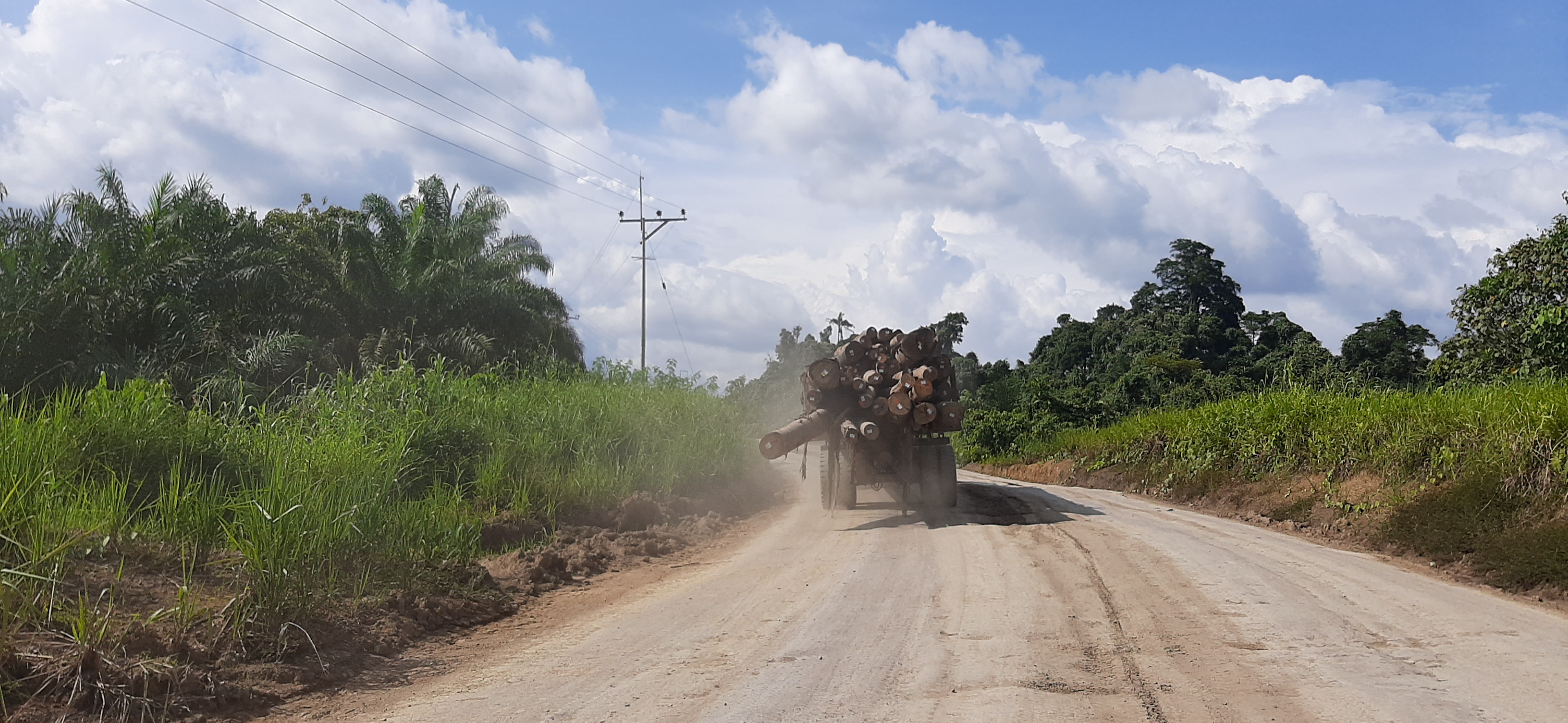(KUCHING, MALAYSIA / BONN, GERMANY) This week, the Forest Stewardship Council FSC officially accepted a complaint against Malaysian timber giant Samling filed by civil society groups last October. FSC accepted the complaint after determining there was “sufficient evidence” regarding violation of FSC policies. In an online statement Wednesday FSC said it will open a case into alleged illegal logging, violations of traditional and human rights, destruction of high conservation value forests and significant conversion of forests as grounds for dissociation.
FSC’s acceptance of the complaint, which was submitted by the Gerenai Community Rights Action Committee (GCRAC), Bruno Manser Fonds, The Borneo Project, KERUAN and SAVE Rivers, marks a breakthrough for the communities’ struggle for justice. Since 2020, Indigenous communities have been using official complaints procedures to raise their concerns about the lack of consultation regarding Samling’s logging activities and the certification process under the Malaysian Timber Certification Scheme MTCS, endorsed by PEFC International. Both of these schemes claim to protect Indigenous rights, but the gap between the provisions and the reality on the ground is vast.
When communities from the Baram region complained of absent or inadequate consultations, SAVE Rivers published those reports on its website. In response, Samling slapped SAVE Rivers with a defamation lawsuit seeking exorbitant damages of 5 million Ringgit, equivalent to 45 times SAVE Rivers’ annual budget. While MTCC and PEFC have so far failed to take action against Samling, FSC has found there is sufficient evidence to move forward with an investigation.
“We are happy to hear that FSC has accepted the complaint,” said William Tingang, from Long Moh. “We ask that they continue to take legal action against Samling because of how they blatantly disrespected our rights and how Reduce Impact Logging is not followed correctly on our land. FSC would only take up our case if the claim against the company is serious, and backed up by evidence.”
The lack of community engagement and transparency in the case of forest certification is a broader issue in Sarawak. Experts meeting at the International Association for Impact Assessment (IAIA) annual conference in Kuching this week share the view that community consultations and free, prior and informed consent are required as part of impact assessments. They assert that more needs to be done for transparency and community engagement in Sarawak.
In her session on flooding in the Baram, Dr.Kamala Vainy Pillai explained a need to revise the current environmental impact assessment (EIA) reporting for logging, which is not required for clearing virgin forests under 500 hectares: “The Sarawak state has to look into this really serious point. I think this is really outdated in view of current climate change.”
Conference participants are hopeful that the IAIA can offer some guidance for a better way forward: “the IAIA conference provides Sarawak with an opportunity to improve practice and engagement,” said Nick Taylor, Impact Assessment expert with extensive experience internationally and in Malaysia. “Ensuring there is wide engagement in preparing impact assessment reports and making them available to affected people is basic good practice.”
Flawed assessments have led to a lack of trust between local Indigenous communities and hydropower, forestry and palm oil companies. “In Sarawak, impact assessment processes require greater trust between communities, assessors, and industry,” explained Jettie Word, director of The Borneo Project. “There is no public participation requirement for impact assessments, and the narrow disclosure policy leaves Indigenous communities in the dark. If auditors and companies listened to community concerns and respected their land rights in the first place, we wouldn’t see SAVE Rivers being sued by Samling, and organizations like FSC wouldn’t have to step in to investigate.”
FSC launches investigation into timber giant Samling

While international experts and civil society discuss best practices for impact assessments at the ongoing IAIA conference in Kuching, FSC launches investigation into Samling’s “unacceptable activities” in Sarawak